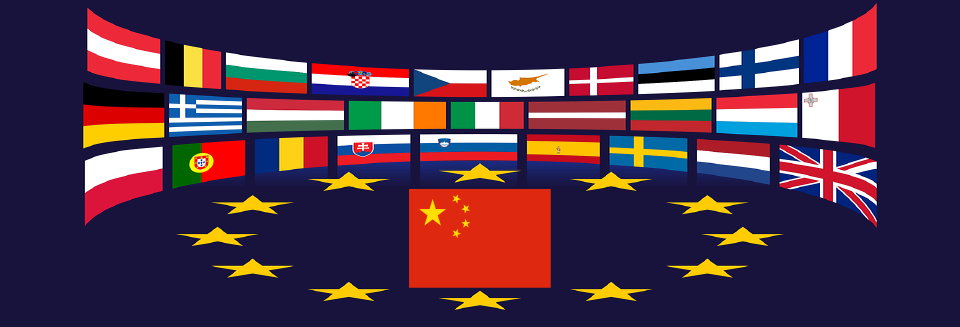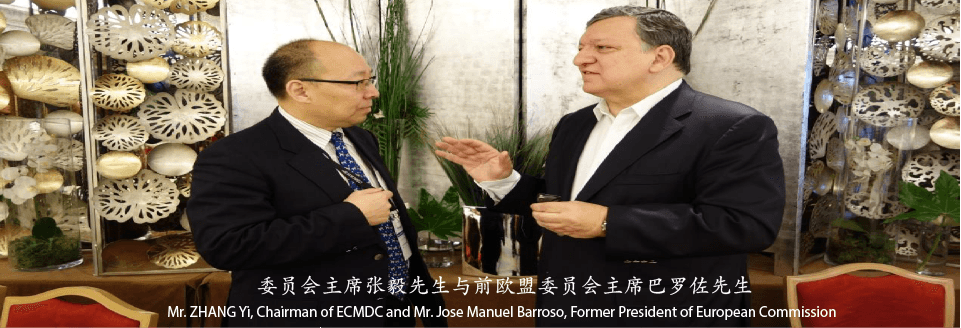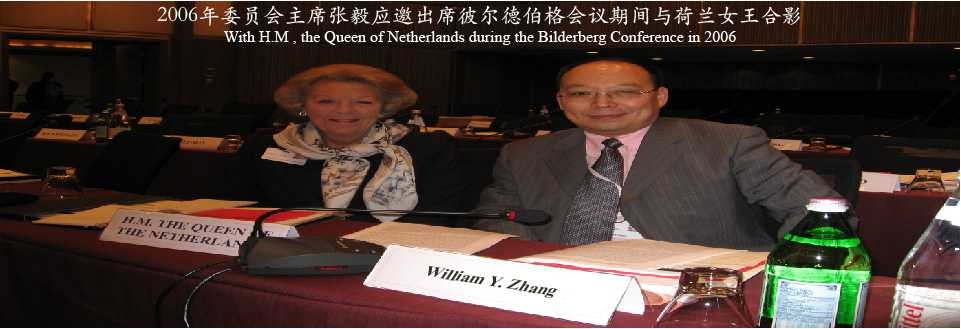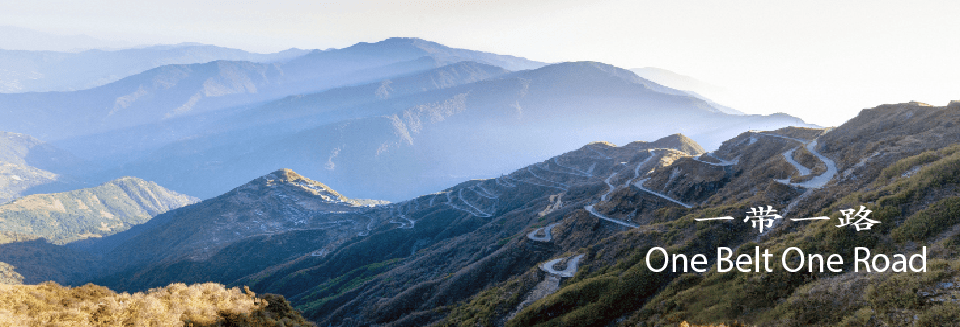Mr. ZHANG Yi Attends the 1st Berlin Global Forum
2015-11-13
From November 12th to 12th, 2015, Mr. ZHANG Yi was invited to attend the 1st Berlin Global Forum, which was held by BMW Foundation.
From 2014 to 2015, BMW Foundation has held five Global Tables in succession in China, Italy, Brazil, Poland and Tanzania, which engages decision-makers from Europe and the emerging powers to build dialogue, trust and cooperation on pressing global issues. This small dialogue format, which is organized in special places transcending national, sectoral and generational borders, offers a more diverse and informal framework than formal multilateral forums. The 1st Berlin Global Forum brings together participants of the five Global Tables with other high-level decision-makers from business, diplomacy, science, culture in order to trigger an influential debate on vital challenges and opportunities for the future of cooperation between Europe and its neighboring regions.
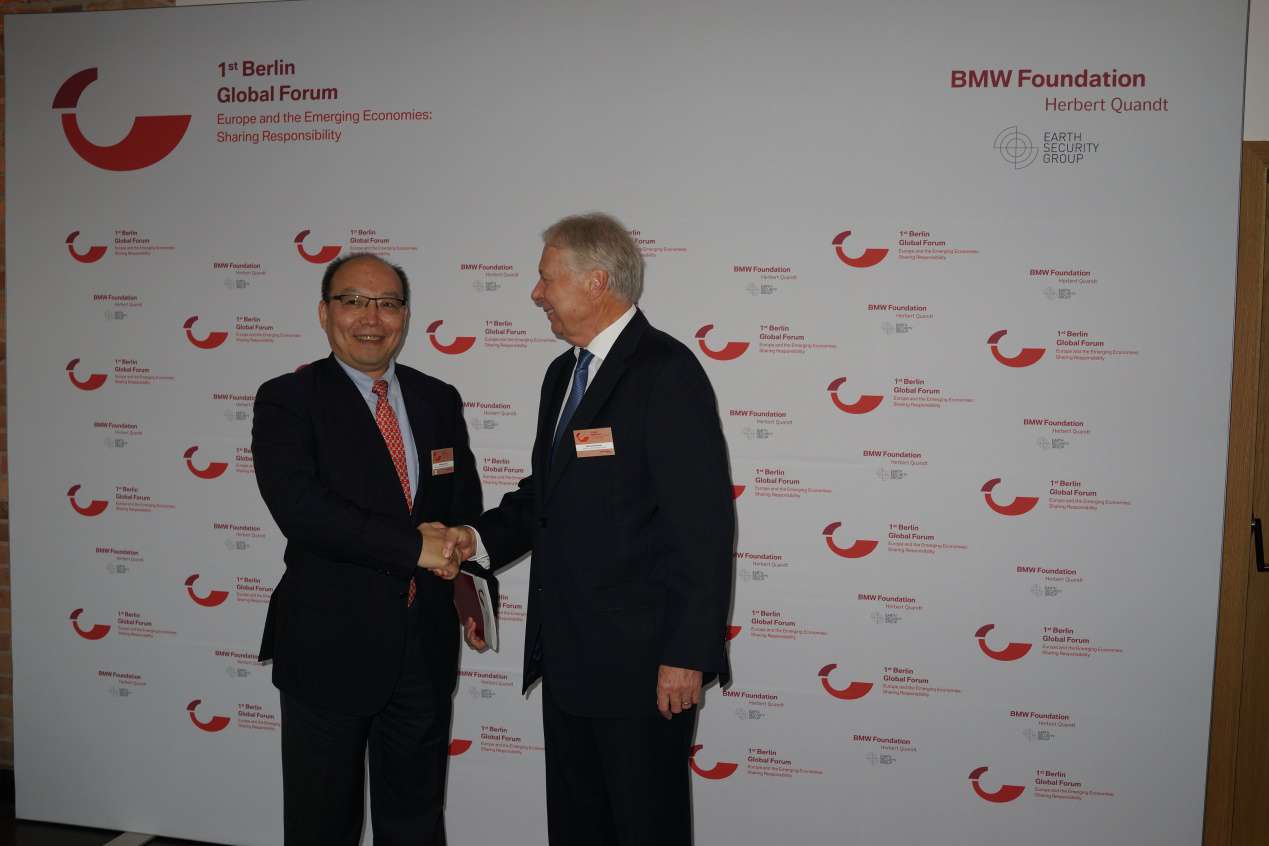
Mr. ZHANG Yi and Mr. Michael SCHAEFER
On November 12th, Mr. Michael SCHAEFER, Chairman of BMW Foundation invited the participants to visit German Bundestag, who were organized to form the working groups and carry out the discussion on the topics of the Forum at the Berlin office of BMW Foundation. This arrangement aimed to reinforce the mutual understanding among the participants and prepare for the Forum of the next day. At the preparatory meeting, every participant exchanged his or her views on the concerned topics to the full.
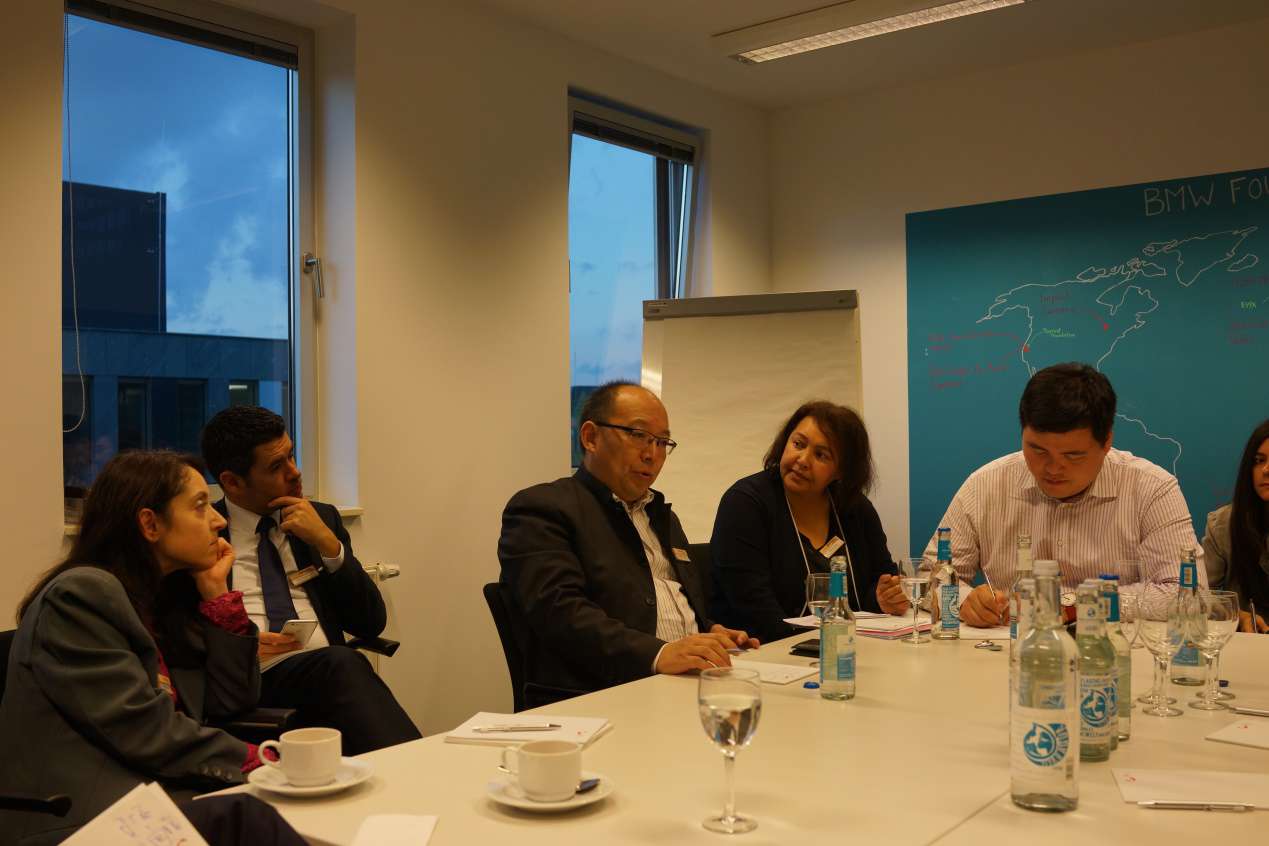
Preparatory Meeting
At 9:30 am of November 13th, the 1st Berlin Global Forum was officially held. After the welcome speech delivered by Mr. Michael SCHAEFER, Mr. Peter ALTMAIER, Head of the German Federal Chancellery, Federal Minister for Special Tasks and Mr. Gunther OETTINGER, EU Commissioner for Digital Economy and Society had separately expounded the policies and opinions of Germany and EU as for the challenges and opportunities that Europe was facing. Henceforth, the Forum was divided into Breakout Sessions with “Energy”, “The New Silk Road” and “Refugees” as the topics.
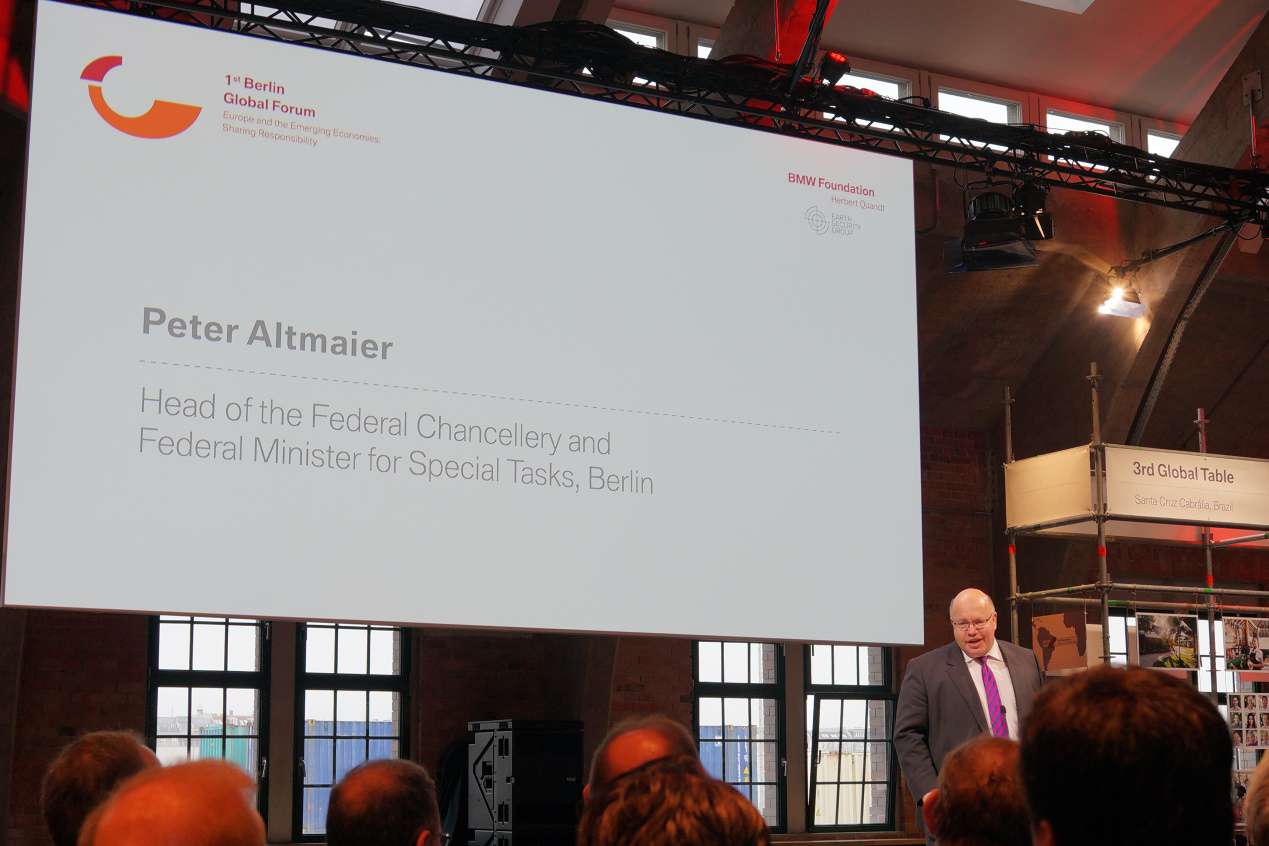
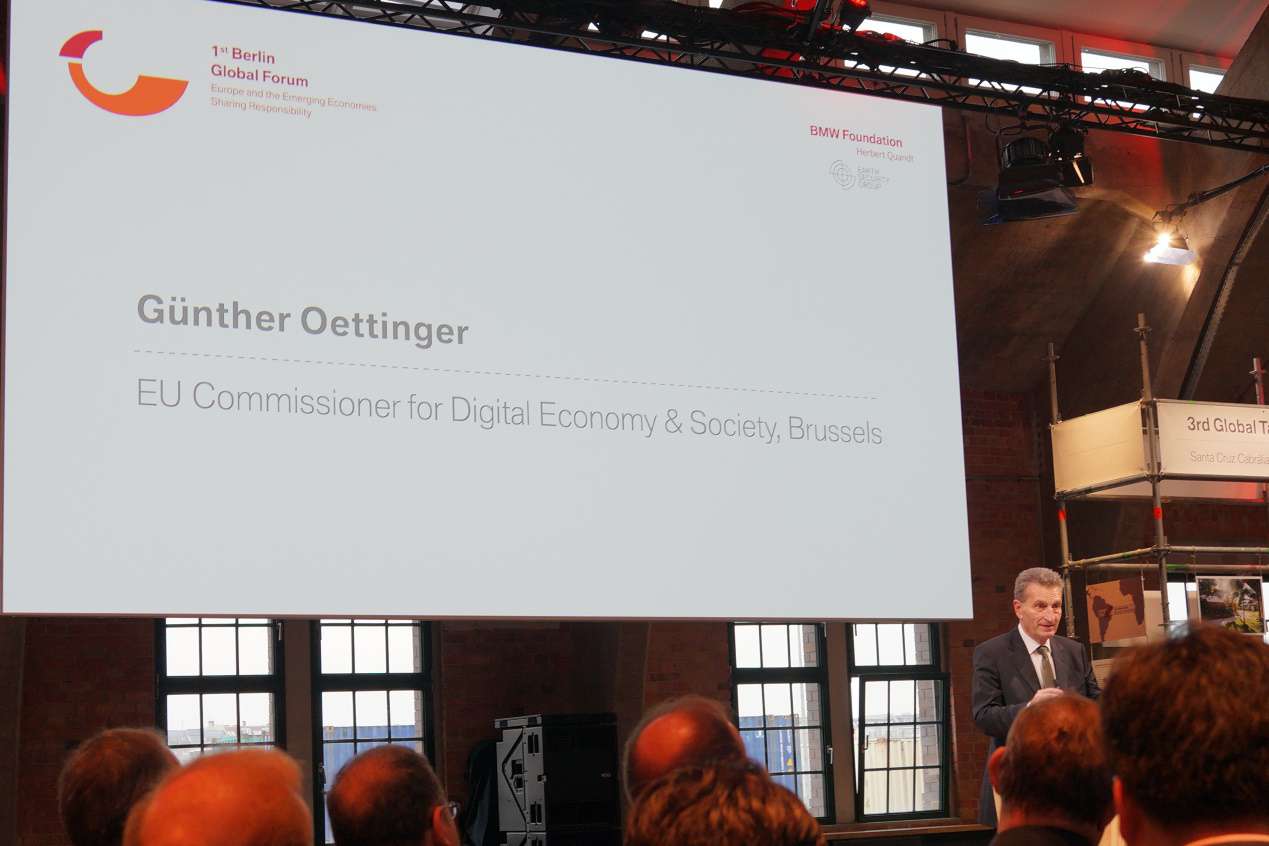
Mr. ZHANG Yi attended Breakout Session of “The New Silk Road” and presented his personal understanding of the policy of the Chinese government, One Belt, One Road (OBOR). He pointed out that to understand OBOR should be necessarily approached from two important concepts which had been mentioned by Mr. XI Jinping, President of China on various important occasions, namely, “to deepen the reform” and “to broaden the open-up”. While China has made the huge progress in the economy, she has to address the issue of unbalanced development among different regions and other social problems in order to embark on the road of realizing the sustainable development. The advanced experiences from other countries and the ensuing cooperation would enable China to realize the above-mentioned objectives. As for China, OBOR is the measure of achieving the peaceful development towards the international community. Mr. ZHANG Yi said, under the guidance of the macro policy of OBOR, all the NGOs could make full use of their advantages and substantiate OBOR through the tangible projects of cultural exchange and economic cooperation. Henceforth, the Commission would jointly set up the more direct and efficient platform that would serve Chinese and European cities in the field of the communication and cooperation with China International Culture Exchange Center and Cosenza Provincial Government of Italy. Mr. ZHANG Yi’s speech had won the universal recognition.
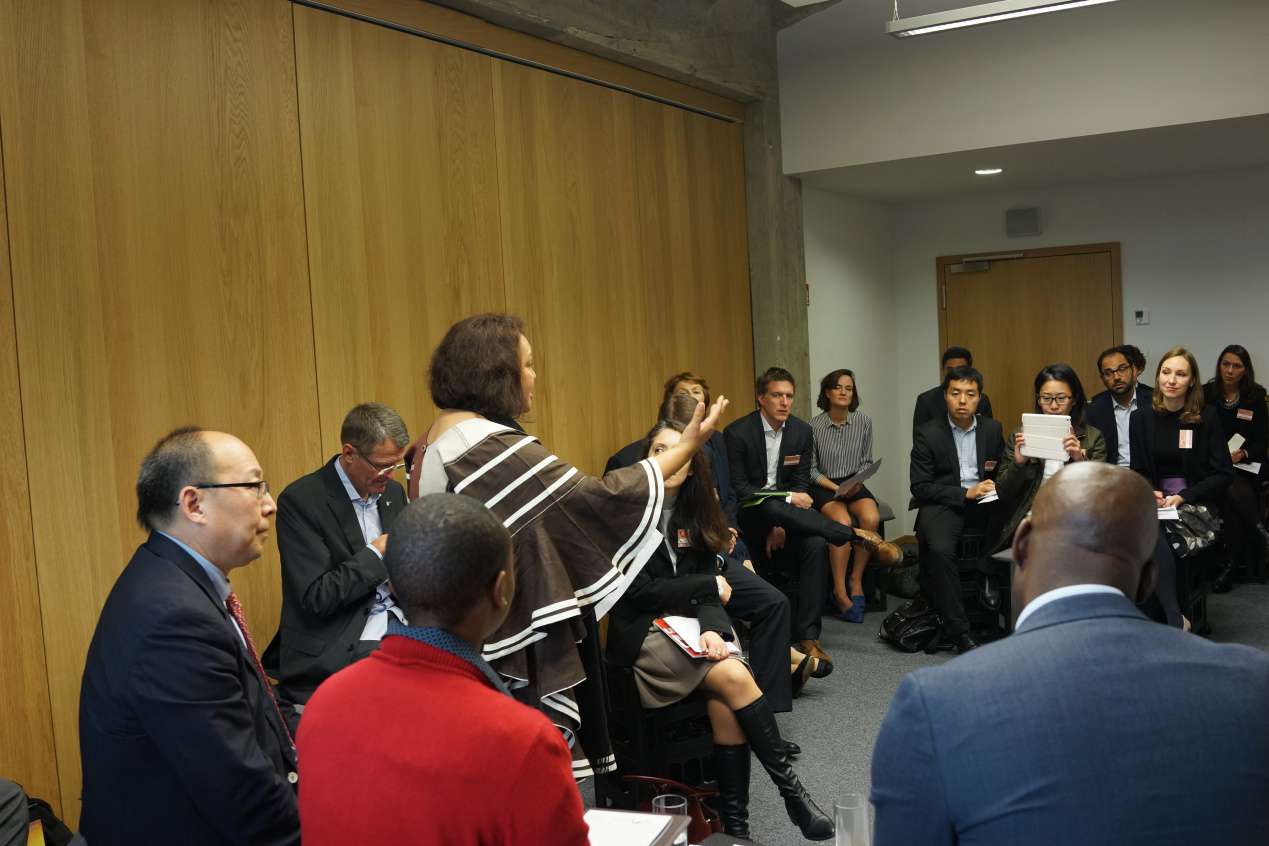
Breakout Session
During the Forum, Mr. ZHANG Yi had reached the consensus of in-depth future cooperation with Mr. Michael SCHAEFER, the former German Ambassador to China and the present Chairman of BMW Foundation, Mr. Solomon PASSY, the former Foreign Minister of Bulgaria and the present President of Atlantic Club and Ms. Frannie LEAUTIER, the former Vice President of World Bank and the present Managing Partner of Mkoba Fund LLC.
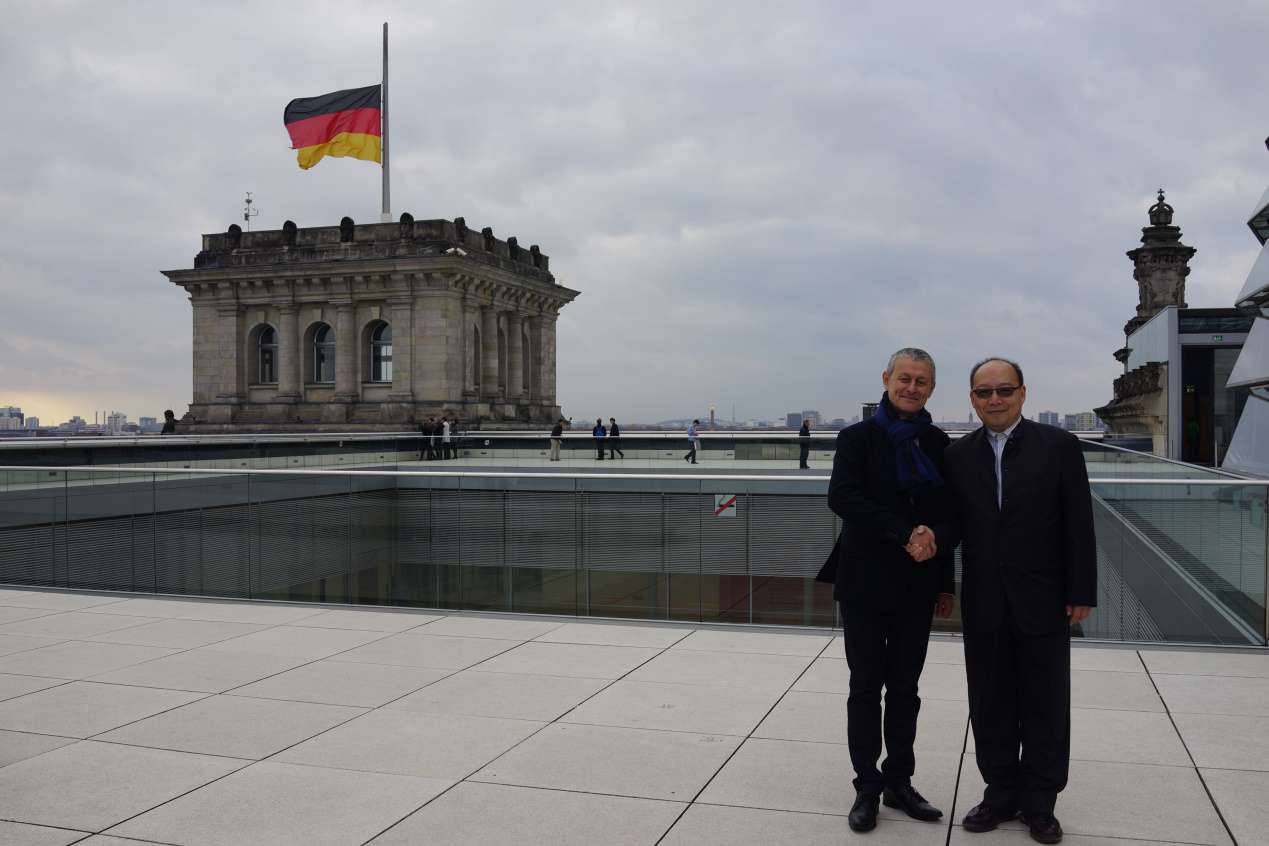
Mr. ZHANG Yi and Mr. Solomon PASSY
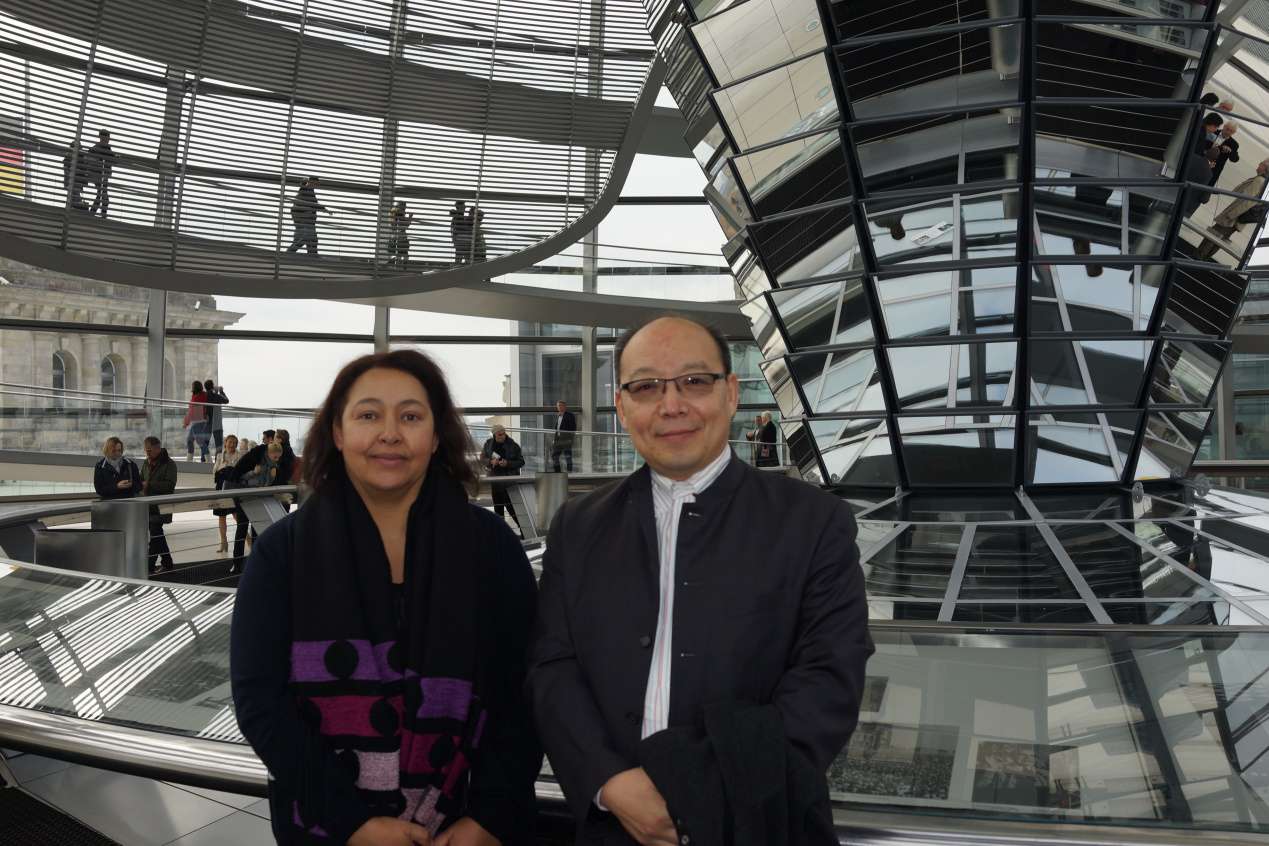
Mr. ZHANG Yi and Ms. Frannie LEAUTIER
Annex:
The New Silk Road and the Cooperation Opportunities
ZHANG Yi
Mr. President and My dear friends,
Good day!
It is my great pleasure to be invited and attend the 1st Berlin Global Forum held by BMW Foundation. I am honored to have a chance to deliver the speech concerning my personal explanation as for the topic of this Workshop, “The New Silk Road: Game Changer for Inclusive Diplomacy?” I am with Europe-China Culture and Economy Commission. Since the day of its establishment, our Commission is devoted to the effort of facilitating cooperation between EU and China in the multiple fields, such as economy, culture and trading and provides the services to EU Headquarters, EU Member States, EU enterprises, the Chinese government and Chinese enterprises with a view to constructing a platform for economic cooperation and cultural exchange in the spirit of openness, equality and reciprocity. Therefore, as Executive Chairman of European non-profit organization with the deep roots in China, I would like to expound the mission and purpose of the New Silk Road policy formulated by the Chinese government to all of you in line with my personal understanding and analysis, and provide the reference suggestions for those who intend to participate in the New Silk Road.
In my opinion, to understand the New Silk Road policy issued by the Chinese government must be firstly approached from two important concepts that President XI Jinping has addressed on various occasions, namely, “to deepen the reform” and “to broaden the open-up”. I believe, these two concepts are the substance and essence of the New Silk Road policy. As we all know, China has become the second largest economy in the world; however, China has such a large population with such a striking difference among different regions in the economic situations. Those foreign friends who have visited China can evidently sense the paradoxical coexistence of prosperous metropolises and poor mountain villages in China. Some Chinese metropolises are as dazzling as New York and London; some Chinese mountain villages are in such abject poverty that might be beyond your imagination. In China, the gap between the haves and the have-nots are attributed to historical and geographical factors, and the economic layouts and distribution system as well. In the meanwhile, we must observe that, the cost of the greatly industrialized achievements that have been made over 37 years in China is heavy. The pollution across China, social conflicts of all sorts that result from the distribution system, all of these have enabled the Chinese government to recognize that, to carry out the further reform, to obviate all the obstacles that block the effort of further emancipating the productivity, only these measures can enable the economy and environment of China to embark on the road of sustainable development, which will not only be in the interest of Chinese people, but also be of great value to the economic prosperity of the world. For the Chinese government, “to deepen the reform” is with the effort of realizing domestic sustainable development as its purpose.
In the age of globalization of today, it will be impossible for any country to retreat itself from the world. Those foreign friends who have known the history of China must know that, China is the greatest victim of the policy of closing up the country. In 1757, Emperor Qianlong of Qing Dynasty, the top ruler of China at that time ordered that foreign mercantile ships carry out the trading only in Humen, Canton. This is the beginning of the implementation of the policy of closing up China. Emperor Qianlong is a very famous figure in the history of China. When he ruled China, Qing Dynasty was the most powerful country in the world. Who can expect that, in 1840, just 87 years after the implementation of the policy of closing up China, Chinese empire, the once top-level power in the world was defeated by British expedition army. Qing Dynasty had to cede the territory and pay the indemnities. Soon, Qing Dynasty was reduced to the status that was bullied by world powers. Chinese always remember this process, in which China falls from the top and engrave this historical period in their heart with the name “National Humiliation of Hundred Years”. Henceforth, my dear friends, the Chinese government that bears the historical lesson in mind keenly understand the importance of open-up, and definitely know that in the age of globalization of today, “to broaden the open-up” only consistently brings the vitality to the economy and society of China and motivates the sustainable development of economy. China should learn from and utilize the advanced experiences and technologies of foreign countries in order to find the solution to the present problems with the open attitude. The further the reform will be, the larger the needs of open-up will be. Therefore, the New Silk Road policy is the good will the Chinese government has stated to the world, while China hope to share peace and development with other countries in the world.
If we have appreciated the significance of “to deepen the reform” and “to broaden the open-up” as for the Chinese government, we can easily understand the mission and purpose of the New Silk Road. The legitimacy of any government lies in its effort of seeking the sustainable development for its own economy and pursuing the better life for its own people. When China is confronted with the demands of in-depth reform and the further motive of open-up, the promulgation of the New Silk Road is a matter of course.
According to my humble knowledge, there have been lots of explanations and interpretations from many scholars and professionals from different perspectives as for the New Silk Road policy since its publication. I am sure that the present friends must have known some of them. In the international community, there are various responses to this policy as well. Because of this fact, the topic of this Workshop is “The New Silk Road: Game Changer for Inclusive Diplomacy?” What we are concerned with is the question, is the Silk Road a serious, feasible and inclusive concept or just an instrument for Chinese dominance? As a Chinese who has been living in Europe for a long time and has the close contacts with important figures of political, commercial and cultural circles, I want to expound my opinion as for this question.
It should be pointed out that, for many Europeans, China is a faraway and mysterious country. We always harbor our doubts towards the strangers and are afraid of what the strangers might do in the next move. It is human nature. The abstract concept of country is consisted of the concrete individuals. If the majority of the people of one country are not familiar with China, the misunderstanding will be inevitable. In the meanwhile, people tend to know the outside world through news. The distinctive features of news report tend to present China, this unknown country in the partial perspective of reporting to the public. Therefore, for many Europeans, China is the country that is pictured by the others and is the country out of others’ understanding, not the country that they themselves come to see with their own eyes, to experience with their own feelings. It is true that many European friends who have visited China must have felt the distinctive cultural differences. However, behind these cultural differences, I believe many foreign friends can sense the kindness, hospitality of the Chinese people and their passion towards the life. Chinese, Europeans and people from all the other regions of the world are yearning for the peace and looking forward to pursuing their own happiness and personal value amid the peace. The Chinese people love peace and yearn for the social and individual progress, this basic fact has determined the main trend of the New Silk Road. The Chinese people have no intention of dominating others and only want to develop the friendship with their neighbors and friends on the basis of respecting others and being respected by others in order to realize the win-win situation.
If the present friends acknowledge my opinion and accept the idea that the New Silk Road is the serious, feasible and inclusive concept, the next question is how we can participate in the New Silk Road. According to the experiences our Commission has accumulated in China over years, I believe we might take the road map that proceeds in an orderly and gradual way. We can begin our work with the least effort. The first step is to know each other; the second step is to carry out the initial cooperation, then to realize the win-win situation. Henceforth, I suggest, we can begin our cooperation as for the New Silk Road with the people-to-people communication and establish the channel of mutual understanding with China through various means, such as tourism, culture and education. Cultural and art exchange can be an efficient way of understanding the life style and thinking habit of the counterpart country, which is the sustainable platform based on the business operation as well. During the process of mutual understanding, we suggest that we can work with Chinese partners and implement the New Silk Road policy through concrete projects. With the progress of the cooperation, the concerned parties can realize the win-win situation on various fronts.
In order to facilitate EU Member States to participate in the New Silk Road policy in an efficient way, our Commission wants to construct a new cooperation platform. We are in the process of establishing EU-China Municipal Development Commission, ECMDC. This new Commission will be centered on the promotional work of economic cooperation and cultural exchange between Europe and China with a view to furthering the mutual understanding and cultivating the friendship between Chinese and Europeans through the cooperation projects. This is the mission of ECMDC, it is our purpose of setting up this organization. In the future, we are determined to entrust ECMDC with the following tasks:
ECMDC will become the embodiment of people-to-people diplomacy, economic diplomacy and cultural diplomacy. Through this work, ECMDC will accumulate high-quality resources and build up the talent tank in various Chinese and European circles of politics, industries, academies, culture and sciences and technologies. ECMDC will gradually become the innovation-oriented think tank and provide the scientific assessment and intellectual support to all the cooperation between China and Europe. ECMDC will become the new channel for EU-China cooperation and will boost the regional development.
ECMDC will be dedicated to the work of communicating the advanced experiences of municipal governance between Chinese and European cities. ECMDC will formulate the down-to-earth and practical road map as the services towards municipal governance through the seminars, field investigations and innovative cooperation in line with the actual situations of Chinese and European cities.
ECMDC will lay emphasis on the execution of high-quality cooperation projects between China and Europe. ECMDC will deliberately select the high-quality projects for the member cities in accordance with the actual demands of Chinese and European cities in order to explore new avenue for the regional and municipal development.
ECMDC will seek the optimum combination between economic development and social welfare with the effort of realizing the sustainable development of regions or municipalities as the objective. ECMDC aims to provide the new perspective for the municipal governance through sharing the advanced experiences. ECMDC will fully rely on the advanced experiences accumulated in Europe in the field of eco-friendly environment management, the preservation of cultural relics and ruins, long-distance education, the vocational skills training, medical and healthcare industry and will turn all these experiences into the concrete cooperation projects through which the municipal governance service of Chinese cities will be improved. Chinese and European people will benefit from the positive outcomes.
ECMDC will explore the new method of interdisciplinary innovation cooperation. On the basis of fully understanding actual situations and demands of member cities, ECMDC will form the interdisciplinary cooperation platform between circles of politics, scholars, culture, sciences and technologies with the purpose of liberating the dynamic power of enterprises within municipalities. ECMDC will embark on the journey of regional development through the achievements of enterprises.
ECMDC will be actively engaged in the work of building up the power of discourse and will promulgate the future achievements in due forms. ECMDC will present the examples and models for the municipal governance in the world and will gradually build up its power of influence.
ECMDC will choose the 21st century smart city construction as the starting point and will set up the platform for the sharing of experiences, disseminating of information and cooperating of projects as for the global challenges in the field of urban planning, cultural build-up, art design, scientific and technological innovation, smart manufacturing, urban and innovative agricultural technologies.
ECMDC will cherish the people-to-people communication and will try to fulfill the work of sharing the experiences, information, achievements and jointly cooperating between Chinese and European design talents. ECMDC will improve the understanding of the counterpart’s culture between Chinese and Europeans through two-way tourist exchange.
Dear friends, I sincerely hope that, when the New Silk Road policy of the Chinese government presents the cooperation and development opportunities to all the concerned parties, we can follow the practical and down-to-earth working principle and rely on ECMDC and other international NGO platforms to efficiently participate in the New Silk Road construction. We can draw up the best road map that will realize the win-win situation on multiple sides and make our own contribution to the work of furthering the mutual understandings between peoples all over the world and promoting the in-depth cooperation.
Thank you!


